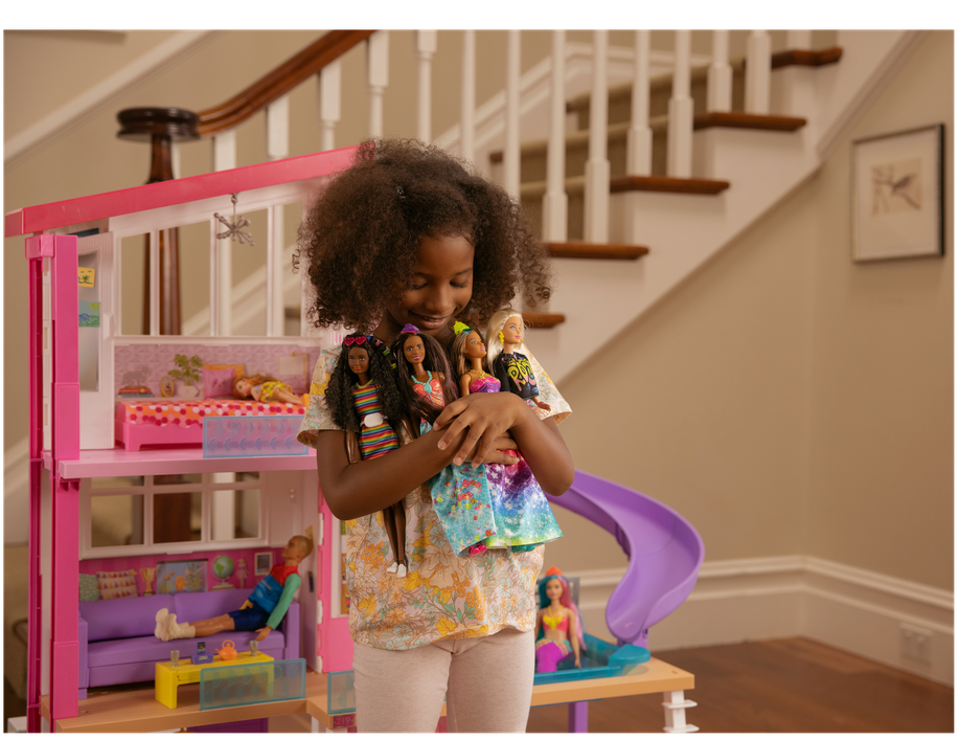On July 21, 2023, hundreds of thousands of people flocked to theaters to see the “Barbie” movie on its release date, setting records for the biggest opening day of the year with an opening box office sale of $70 million. People from all walks of life dressed in pink, planned cute coordinating outfits with their friends and took selfies with the “Barbie” movie posters. While audiences knew they were in for a show of excitement and nostalgia, few expected the “Barbie” movie to ask much deeper questions — to implore the moviegoers to look within and dissect their identities.
The codification of the Barbie world into Barbies of different talents and occupations is not too different from our own world. Humans find ways to put themselves and each other in boxes — to pattern-recognize and categorize. Everyone has to be good at something. Everyone has to have a specific passion. Everyone needs something to set themselves apart from everyone else.
The “Barbie” movie explores this fact; each Barbie is differentiated from the next based on profession, skill or trait. There is a physicist Barbie (Emma Mackey), a doctor Barbie (Hari Nef) and even Midge, who is known simply as pregnant Barbie (Emerald Fennell). All of the Barbies are special in their own ways — except one. The original stereotypical Barbie. She questions herself, wondering what her purpose is as a Barbie without a label. She fears she will never amount to anything, and worse, that she was never meant to amount to anything in the first place.
But stereotypical Barbie’s plainness is deceptive; without a label, she can represent anyone. We are not all physicists, doctors or pregnant, but we are all people. We all have these fears, worries and sleepless nights wondering what we were made for. The “Barbie” movie is a well-done and novel example of de-girlbossing in pop culture. More than ever, people are realizing that they do not need labels or have to set themselves apart from one another. This is especially true for women, whose representation in media often relies on
exceptionalism.
Emilie Zaslow, a writer and Associate Professor of Communication Studies at Pace University, criticizes the “girlboss” mentality. “[With this] ‘pick yourself up by your bootstraps’ mentality, we see a kind of female empowerment that is completely self-focused on independence and individual success and power over others. It’s not about unifying or building up, it’s about: what do I look like when I’m in charge?” Zaslow said in a BBC interview.
The “Barbie” movie holds a mirror to the audience and calls on them to understand that they are people first – that unity, working together and helping others is more important than being special and different. It depicts a sense of communalism that juxtaposes the American individuality that we so often see on screen. Importantly, the movie also calls for women to come together and support each other rather than pit themselves against one another.
As feminist media continues to adapt to the society it reflects on, there will always be points of contention on “feminist media done right.” Most recently, Rachel Zegler, the lead actress in Disney’s live-action “Snow White” movie has come under fire for comments about the 1937 animated version of the movie.
At a press release, Zegler talked about her opinions on the original cartoon. “It’s no longer 1937, and we absolutely wrote a Snow White that is… not going to be saved by the prince, and she’s not going to be dreaming about true love. She’s dreaming about becoming the leader she knows she can be,” Zegler said. This interview garnered massive scrutiny from every corner of the internet because of Zegler’s criticisms of the original animated film.
With similar sentiments to the “Barbie” movie, many content creators online were hurt by Zegler’s disregard
for the themes of “finding true love” and responded to Zegler, saying that it is okay to also not want to
be a leader or to just dream of love and marriage, similar to how it is okay to be stereotypical Barbie — to just be yourself is enough, no matter how big or small your goals may be.
In any case, a key criticism of “girlbossing” according to Zaslow is that it pits women against each other and minimizes the importance of unity and supporting other women. While some argue that Zegler may have been guilty of “girlbossing” herself by implying that the original Snow White’s character and goals are a relic of the past and have no place in 2023, it can also be argued that the creators “dogpiling” on Zegler’s vision of Snow White are minimizing Zegler’s personal perception of what womanhood means to her.
While the landscape of feminist media continues to evolve, it is important to keep considering and reconsidering what feminism is and how to maintain unity even as times change.
